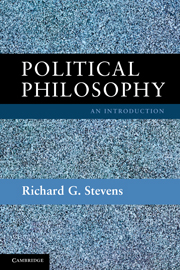6 - Moderation
Published online by Cambridge University Press: 05 June 2012
Summary
The city in speech that Plato has Socrates build in the “Republic” is the best city imaginable. The road to it is paved with the abstractions and analogies we discussed in the preceding chapter and with the exaggeration of those abstractions and analogies. It lays up or discovers, however, a pattern in the heavens. Although the pattern is not in the form of an “ideal” for which we are bidden to strive, it does suggest to us that if we rectify the chief analogy so that we see it as an analogy and not as a perfect likeness, if we rectify the chief abstraction by bringing back into the equation the needs of the body, if we reduce to reasonable levels the exaggeration of both of these literary devices, and, finally, if we take into account the force of eros and the force of thumos, or spiritedness, and a host of lesser matters, we have something of a practicable pattern. It is still only a pattern, however, and the task of statesmanship, the chief element of which is prudence, or practical judgment, is to find the best dilution of the already rectified pattern that will make the best of the raw material – the human beings – at hand, so that some sort of decent city that is law-abiding and stable might come about and bring a degree of justice to all. The first thing to forget is the widespread, present-day notion that “justice” and “equality” are interchangeable terms.
We can only rectify the chief abstraction if we first understand it. As we argued in the preceding chapter, every abstraction falsifies that which is its focus, but the focus here is itself the abstraction. To understand this abstraction, we have to appreciate that the “needs of the body” add up to what we call “economics,” or household management. Now anyone who thinks that politics and economics can be set altogether apart from each other is mistaken. We need to abstract from economics, however, if we are to get a clear understanding of politics itself. If we do not rejoin them in the practice of politics, however, unhappy results will be incurred. The man who properly turns our attention to the practicable is Aristotle. He sees that trying to make a city where reason rules simply and absolutely is a fool's errand, but he also sees that the only truly good city will be one where good judgment holds the highest place in the political order. The communism of the “Republic” is an absurdity. Adeimantus asked how Socrates expected the gold and silver classes to have the city entirely in their grasp and yet be willing to take no material benefit from that fact – to live in monastic poverty. The answer Socrates gives seems to “put one over” on Adeimantus, but we need not be taken in by the answer. Here, very pointedly, we see that we need to take part in the dialogue to profit from it. Aristotle sees that it is still the case that, although property is in its nature private, its employment ought to be for the public good. A watered-down diminution of the wealth of the wealthy is a practicable, achievable goal, but we have to support our understanding of both Plato and Aristotle with the reminder that any such diminution is critically dependent on there being actual rule by the wisest members of the community, and to be well-intended and ardent or to be equipped with a doctrine, a prepackaged “ism,” is not the same thing as to be wise. Platonic communism among human beings – marriage, procreation, and the like – is altogether destructive. The family is always potentially divisive of the city, but it is also essential to the city because the affection of kinfolk is the only thing that can give assurance of the well-being of people. To speak in modern terms, “day care” just “doesn't cut it.” Somehow the family's divisiveness and its contribution must be balanced, and this balance is always a difficult task for statesmanship. Shakespeare's Romeo and Juliet shows how difficult it can be. Finally, although it is not the case that there are three neatly demarcated classes – the rational, the spirited, and the appetitive – it is the case that there are three broadly distinguishable elements in the city, and the good city is one in which they are in a proper state of balance. That balance too will be a challenge, but the first necessity in approaching the problem is to remind ourselves of the need to rectify the chief abstraction of the “Republic.” The notion prevalent since the nineteenth century that the classes are simply sorted out as the “rich” and the “poor” is an error. It is an error that turns the relation between politics and economics upside down. If we follow Karl Marx on this matter, or even such a “soft” heir of Marx as Charles A. Beard, our chance of reconciling the naturally antagonistic classes is made much more difficult. The perpetual juggling of these problems is a task of statesmanship, insofar as it turns its attention inward. We do not mean to deny that there are poor people and rich people in any city. Nor do we overlook the fact that, until recently, in every country the poor were far more numerous than the rich. We mean only to state emphatically that politics cannot be reduced to economics. Here, as in many other things, Aristotle is a clearheaded guide.
- Type
- Chapter
- Information
- Political PhilosophyAn Introduction, pp. 129 - 148Publisher: Cambridge University PressPrint publication year: 2010



